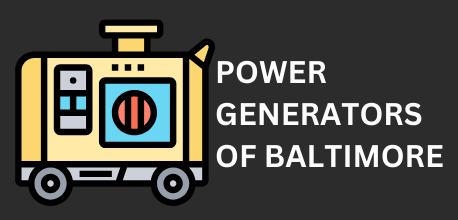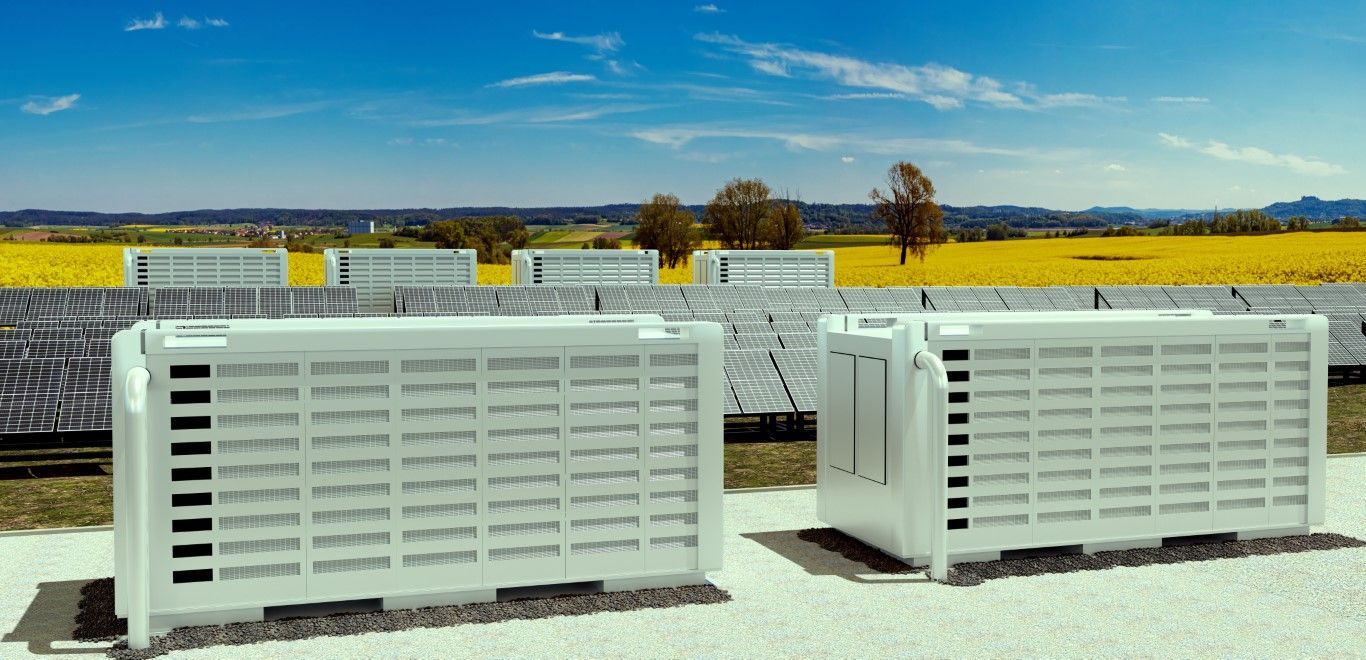
A solar generator is a device that captures sunlight and converts it into electrical energy. This energy is then stored in a battery and can be used to power various electrical devices. The basic components of a solar generator include:
- Solar Panels: These capture sunlight and convert it into electricity.
- Battery: Stores the electricity generated by the solar panels.
- Inverter: Converts the stored direct current (DC) from the battery into alternating current (AC), which is used by most home appliances.
- Charge Controller: Regulates the amount of electricity going into the battery to prevent overcharging.
How It Works
The process begins with sunlight hitting the solar panels. These panels contain photovoltaic cells that absorb the sunlight and generate electrical current. This current is DC, which is then directed to the battery where it is stored. The inverter takes this DC power and converts it into AC power, making it usable for household appliances. The charge controller ensures that the battery remains at an optimal charge level, preventing damage and extending its lifespan.
Installation Process
Installing a solar generator involves several key steps:
- Site Assessment: A professional will evaluate your property to determine the best location for the solar panels, ensuring maximum sunlight exposure.
- System Design: Based on the assessment, a system will be designed to meet your specific energy needs.
- Panel Mounting: Solar panels are installed on a roof or other suitable location with a structure that supports them.
- Wiring: Electrical connections are made between the solar panels, battery, inverter, and charge controller.
- Testing: The system is tested to ensure everything is functioning correctly and efficiently.
Maintenance Tips
To keep your solar generator in top shape, follow these maintenance tips:
- Regular Cleaning: Dust and debris can reduce the efficiency of your solar panels. Clean them periodically to maintain optimal performance.
- Check Battery Health: Regularly inspect the battery for any signs of wear or damage. Replace it as needed to ensure reliable power supply.
- Monitor Performance: Use monitoring tools to track the performance of your solar generator and identify any issues early on.
- Inspect Connections: Periodically check all electrical connections to ensure they are secure and free from corrosion.

We will get back to you as soon as possible.
Please try again later.
Importance and Relevance
Solar generators are an important investment for several reasons:
- Environmental Impact: They provide a clean source of energy that reduces your carbon footprint and reliance on fossil fuels.
- Cost Savings: Over time, solar generators can save money on electricity bills and reduce energy costs.
- Energy Independence: They offer a way to generate your own power, giving you greater control over your energy needs.
Why and When To Consider It
Consider a solar generator if:
- You Live in a Remote Area: Solar generators are ideal for locations with limited access to traditional power sources.
- You Experience Frequent Power Outages: They provide a reliable backup power source during outages, ensuring you stay powered up.
- You’re Looking for Sustainable Solutions: Solar generators are a great choice if you’re committed to reducing your environmental impact and using renewable energy.
Power Backup and Off-Grid Capabilities
One of the significant advantages of solar generators is their ability to serve as a backup power source. Whether you need power during a blackout or want to live off the grid, solar generators provide a dependable solution. They can power essential appliances like refrigerators, lights, and medical equipment, ensuring you remain comfortable and safe regardless of external power issues.
If you’re interested in learning more about
solar generators in Baltimore, MD or want to explore how they can benefit you, contact us today. Our team of experts is here to provide personalized advice and solutions tailored to your needs. Don’t wait—start your journey towards cleaner, more reliable energy today!
Types of Solar Generators: A Comprehensive Guide
In recent years, solar generators have emerged as a popular and eco-friendly solution for power needs. They harness the sun's energy to generate electricity, offering a sustainable alternative to conventional power sources. This guide explores the different types of solar generators, their key characteristics, and their most suitable applications.
Portable Solar Generators
Portable solar generators are compact, lightweight, and designed for mobility. They typically come with built-in batteries that store the energy captured by solar panels. These generators are ideal for outdoor activities such as camping, hiking, or road trips, where access to conventional power sources is limited.
Features
- Compact Design: Portable solar generators are usually small and easy to transport.
- Built-in Battery: They come with an integrated battery that stores solar energy for later use.
- Multiple Outputs: Many models offer various output options, including AC outlets, USB ports, and DC ports.
Advantages
- Ease of Use: Simple to set up and operate, often requiring just a few connections.
- Versatility: Suitable for powering small devices, such as smartphones, laptops, and small appliances.
- Eco-Friendly: Reduces reliance on fossil fuels and minimizes carbon footprint.
Applications
- Camping: Provides power for lights, cooking appliances, and communication devices.
- Emergency Backup: Useful for short-term power outages, especially in remote areas.
- Travel: Ideal for RVs and caravans to power essential electronics.
Home Solar Generators
Home solar generators are larger systems designed to provide electricity for household use. They are often installed as part of a residential solar power setup and can be used to power multiple appliances and electronics within the home.
Features
- High Capacity: Capable of generating and storing more power compared to portable models.
- Integration with Solar Panels: Typically works in conjunction with rooftop solar panels to charge the generator.
- Advanced Inverters: Equipped with inverters to convert DC power from the solar panels into AC power suitable for home use.
Advantages
- Energy Independence: Reduces reliance on the grid and provides a backup power source during outages.
- Cost Savings: Can lower electricity bills over time by using solar energy to power home appliances.
- Increased Property Value: Solar installations can enhance the value of a property.
Applications
- Residential Power Supply: Powers household appliances, lights, and electronics.
- Backup Power: Acts as a backup during power outages or emergencies.
- Energy Efficiency: Works alongside home solar panels to optimize energy usage.
RV and Marine Solar Generators
RV and marine solar generators are specifically designed for use in recreational vehicles and boats. They are built to withstand harsh conditions and provide reliable power on the go.
Features
- Durability: Constructed to endure outdoor and marine environments.
- Portability: Often designed to be easily transported and installed in RVs or boats.
- Specialized Connectors: Includes connectors and adapters tailored for RV and marine use.
Advantages
- Reliability: Provides consistent power in remote locations where conventional sources are unavailable.
- Energy Efficiency: Utilizes solar power to reduce reliance on fuel or shore power.
- Convenience: Enhances comfort and functionality in RVs and boats by powering appliances and electronics.
Applications
- Recreational Vehicles: Powers appliances such as refrigerators, microwaves, and entertainment systems.
- Boats: Provides energy for navigation systems, lighting, and communication equipment.
- Remote Locations: Ideal for off-grid adventures and extended trips.
Backup Solar Generators
Backup solar generators are designed to provide emergency power during grid outages or natural disasters. They offer a reliable power source when traditional electricity is unavailable.
Features
- High Power Capacity: Built to supply enough power to sustain essential household functions.
- Automatic Transfer Switches: Some models come with automatic transfer switches that switch power sources seamlessly during an outage.
- Extended Battery Life: Equipped with large batteries to store ample energy for extended use.
Advantages
- Reliability: Ensures a consistent power supply during emergencies or power disruptions.
- Ease of Setup: Often comes with features that simplify the transition between grid and backup power.
- Safety: Reduces reliance on noisy and polluting gasoline generators.
Applications
- Emergency Preparedness: Provides backup power for critical appliances like refrigerators, medical equipment, and heating systems.
- Natural Disasters: Essential during events such as hurricanes, floods, or earthquakes.
- Power Outages: Ensures that essential services remain operational during outages.
Grid-Tied Solar Generators
Grid-tied solar generators are integrated into the electrical grid, allowing users to generate electricity that can be fed back into the grid. These systems often include solar panels, an inverter, and a battery storage system.
Features
- Net Metering: Enables users to earn credits for excess electricity sent back to the grid.
- Seamless Integration: Works in conjunction with the grid to ensure a constant power supply.
- Battery Storage: Stores excess energy for use during periods of low solar generation.
Advantages
- Cost Savings: Reduces electricity bills by offsetting energy consumption with solar power.
- Environmental Impact: Contributes to reducing greenhouse gas emissions by using renewable energy.
- Incentives: Eligible for various government incentives and rebates for renewable energy systems.
Applications
- Residential Use: Helps manage energy costs and supports sustainable living.
- Commercial Use: Can be scaled for businesses to reduce operating costs and enhance sustainability.
- Energy Efficiency: Optimizes energy use by balancing between solar power and grid electricity.

Solar generators offer a diverse range of options to suit various needs and applications. From portable models perfect for outdoor adventures to robust home systems designed for daily use and emergency backup, there is a solar generator type to fit almost any situation. By choosing the right type of solar generator, you can harness the power of the sun to enhance your energy independence, save on electricity costs, and contribute to a more sustainable future.
Factors to Consider When Choosing a Solar Generator
In recent years, solar generators have become an essential tool for those seeking reliable, eco-friendly energy solutions. Whether you’re planning a camping trip, preparing for emergencies, or aiming to reduce your carbon footprint, choosing the right solar generator is crucial. This guide will explore the key factors you should consider to make an informed decision, ensuring you select a solar generator that meets your needs effectively.
Power Output and Capacity
The power output of a solar generator determines how much energy it can produce and, consequently, what appliances or devices it can power. It is typically measured in watts (W) and is a primary consideration when selecting a generator.
Understanding Wattage
The wattage of a solar generator indicates the maximum amount of power it can supply. If you plan to use the generator for high-power devices like refrigerators or power tools, opt for a model with a higher wattage. On the other hand, if you need it for smaller devices like phones or laptops, a lower wattage unit may suffice.
Battery Capacity
Battery capacity, measured in ampere-hours (Ah) or watt-hours (Wh), affects how long the generator can supply power. A higher capacity battery will store more energy and provide power for a longer duration. Evaluate your energy needs to choose a generator with an appropriate battery capacity.
Solar Panel Compatibility
Solar generators often come with their own solar panels or can be paired with external ones. Ensuring compatibility between the generator and the solar panels is crucial for efficient charging.
Built-in vs. External Panels
Some solar generators include built-in panels, making them a compact, all-in-one solution. Others require external panels, which can be more flexible but might require additional purchases. Consider your space and setup preferences when deciding between these options.
Panel Efficiency
The efficiency of solar panels, measured as a percentage, determines how well they convert sunlight into electricity. Higher efficiency panels can generate more power in less sunlight, which is beneficial in less sunny conditions.
Portability and Size
Portability is an essential factor if you plan to use your solar generator on the go. Its size and weight will impact how easily you can transport it.
Weight and Dimensions
Lighter and more compact models are easier to carry, making them ideal for camping or travel. However, larger models with higher capacities might be bulkier but offer more power. Balance the need for portability with your power requirements.
Handle and Wheels
Some solar generators come with built-in handles or wheels to enhance portability. These features can make transporting the generator easier, especially if it’s heavy or large.
Charging Time
Charging time refers to how long it takes to fully charge the solar generator’s battery from solar panels or an external power source.
Solar Charging Time
The time required to charge a generator using solar panels depends on the panel's efficiency and the amount of sunlight available. Check the manufacturer’s specifications to understand how long it will take to charge the generator fully.
AC and DC Charging
In addition to solar charging, many generators can be charged using AC (household) or DC (car) power sources. This flexibility can be useful if you need to charge the generator quickly or when solar conditions are less favorable.
Number and Type of Ports
The types and number of ports available on a solar generator determine what devices you can charge and how many simultaneously.
AC Outlets
AC outlets are crucial for powering standard household appliances. Ensure the generator has enough AC outlets to meet your needs and that they provide the correct voltage and frequency.
DC Ports and USB Outputs
DC ports are suitable for devices that use direct current, such as car accessories. USB outputs are essential for charging smartphones, tablets, and other small electronics. Check for multiple ports to accommodate various devices.
Durability and Build Quality
A solar generator should be built to withstand the conditions in which it will be used. Look for models with sturdy construction and reliable materials.
Weather Resistance
If you plan to use the generator outdoors, choose a model with weather-resistant features. It should be able to endure rain, dust, and other environmental factors.
Warranty and Support
A good warranty and customer support can provide peace of mind. Check the manufacturer’s warranty terms and the availability of customer service for any issues that may arise.
Budget
Solar generators come in a range of prices, so it’s important to determine your budget and find a model that offers the best value for your money.
Cost vs. Features
Higher-priced models often come with more features and better performance. Weigh the cost against the features you need to make an informed decision.
Long-Term Investment
Consider the long-term benefits of investing in a higher-quality solar generator. A more expensive unit may offer better durability and efficiency, potentially saving you money in the long run.
Choosing the right solar generator involves careful consideration of various factors, including power output, solar panel compatibility, portability, charging time, ports, durability, and budget. By evaluating these aspects based on your specific needs, you can select a solar generator that provides reliable, efficient, and sustainable energy for your purposes. Whether for emergency preparedness, outdoor adventures, or everyday use, a well-chosen solar generator can be a valuable addition to your energy solutions.
Let's Connect!
We offer top-notch standby whole-house generators to ensure uninterrupted power supply during outages. With our expertise and commitment to quality, you can trust us to provide reliable backup solutions tailored to your needs. Hire us today for peace of mind knowing your home or business is protected against power interruptions.